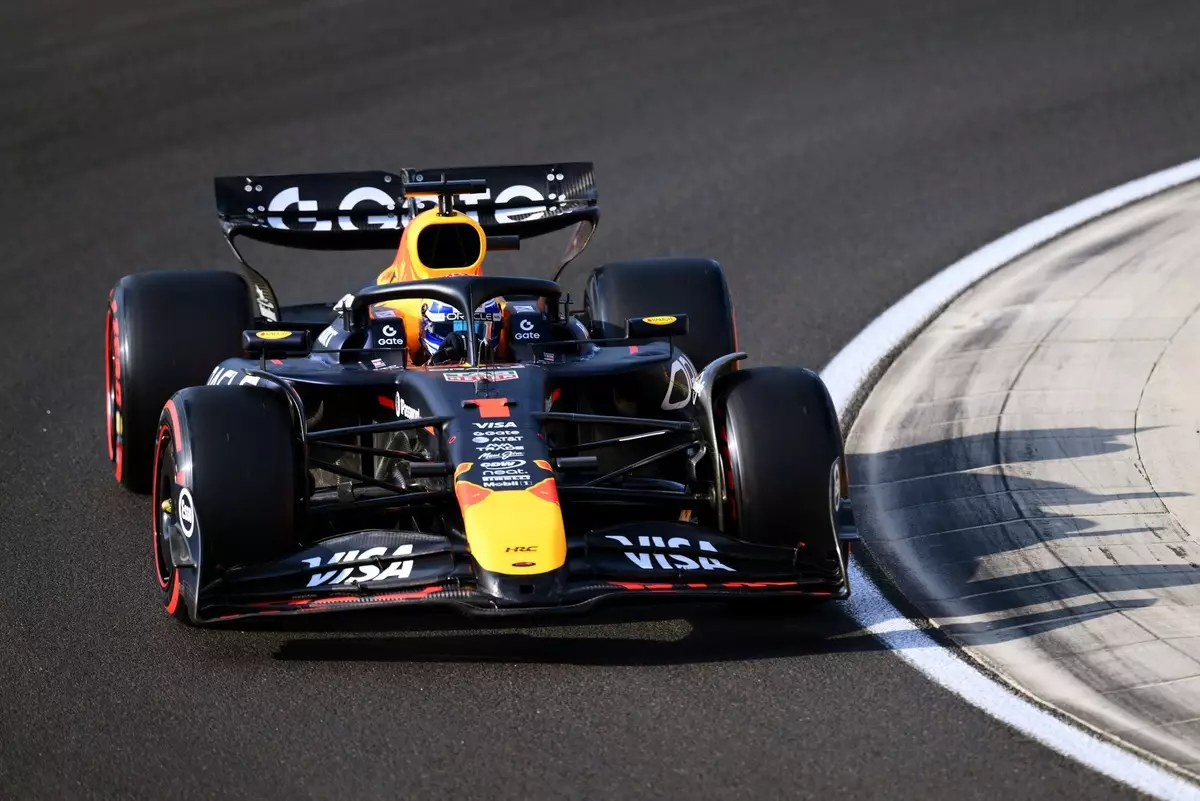Max Verstappen’s recent comments and performances underscore the precarious nature of high-level motorsport, especially when even a reigning champion faces formidable setbacks. Finishing the first two practice sessions at the Hungarian Grand Prix well behind the pace-setters, Verstappen’s frustration is palpable and justified. His car, described as “undriveable” and akin to “driving on ice,” reveals critical issues within the RB21, casting doubt over Red Bull’s preparation. Such a statement isn’t just whining; it’s a wake-up call that even the best teams can face unpredictable challenges. When a car’s behavior deteriorates to the point where it lacks grip and balance, it signals that the development process is perhaps hitting a wall, or that unforeseen problems have emerged late in the setup phase.
Throughout the season, Red Bull has maintained dominance, but this episode indicates that resilience alone isn’t enough; meticulous diagnosis and rapid adjustments are essential. Verstappen’s acknowledgment that “nothing really works” points toward systemic issues—whether technical, aerodynamic, or mechanical—that demand urgent investigation. The fact that formulas and setups that worked earlier in the season are now failing suggests that the team might be grappling with underlying design flaws, or perhaps the specific characteristics of the Hungaroring are exposing weaknesses yet to be fully understood.
Struggles Beyond Raw Speed: The Human Element and Team Dynamics
F1 isn’t solely a test of machines; it’s a test of mental fortitude and team synergy. Verstappen’s interaction with the steward over the towel incident highlights the human aspect of racing. While seemingly minor, such events reflect the intense focus and high-stakes environment drivers operate in. Verstappen’s quick acknowledgment of the oversight and the stewards’ warning demonstrate professionalism but also an awareness of how every detail counts. These micro-incidents can ripple into larger issues if not managed properly, especially when the car isn’t performing optimally.
On the team-side, the debriefing with engineers and team management reveals Red Bull’s proactive approach—an effort to diagnose, understand, and rectify problems amidst mounting pressure. The team’s capacity to adapt quickly is impressive; history shows that Red Bull is capable of turning around weekends swiftly. Yet, the absence of immediate clarity about the root causes leaves fans and analysts questioning whether this is a temporary blip or a sign of deeper systemic trouble. If the car continues to underperform, the coordination between drivers and engineers, along with the team’s strategic planning, will be put to the test.
Yuki Tsunoda’s Perspective: A Different Set of Challenges
While Verstappen battles with grip and balance issues, his teammate Yuki Tsunoda offers a different story from the cockpit. Finishing ninth, roughly eight-tenths off the pace, Tsunoda indicates that the struggle isn’t solely about fundamental car deficiencies but perhaps more nuanced. His comment about the lack of grip and the adjustments made suggests a work-in-progress setting and a team striving to optimize every parameter.
Tsunoda’s situation points to the complexity of fine-tuning a Formula 1 car. Even when components are similar, individual feedback shapes the development trajectory. His mention of not yet receiving the latest front wing hints at ongoing upgrades and the ripple effect those modifications can have. It isn’t just about raw speeds; it’s about balanced development, incremental gains, and strategic testing—each driver’s experience is a vital element in this puzzle.
Reflection: The Psychology of Adversity in Racing
Verstappen’s candidness about his struggles is a demonstration of a driver not shying away from uncomfortable truths. Adversity in racing is inevitable—machines break down, setups fail, and conditions surprise even the most experienced. However, how teams and drivers respond defines their ultimate success. Verstappen’s determination to understand and fix the issues exemplifies mental strength and a competitive mindset.
Yet, it’s worth questioning whether the current situation reveals a gap in Red Bull’s engineering that needs an overhaul or is just part of the relentless variability inherent in motorsport. That uncertainty can be mentally draining, but it also offers an opportunity for growth. For Verstappen, this is a test of patience and resilience—traits that have propelled him to the top and will determine whether he and his team can bounce back quickly.
In the cutthroat landscape of Formula 1, setbacks serve as both obstacles and motivators. For Red Bull, how they manage this period of turbulence will be a testament to their engineering prowess and their capacity to adapt under pressure. For Verstappen personally, embracing these challenges with a critical eye and unwavering focus could turn this difficult phase into a stepping stone for future dominance.

